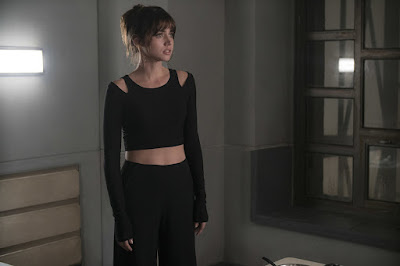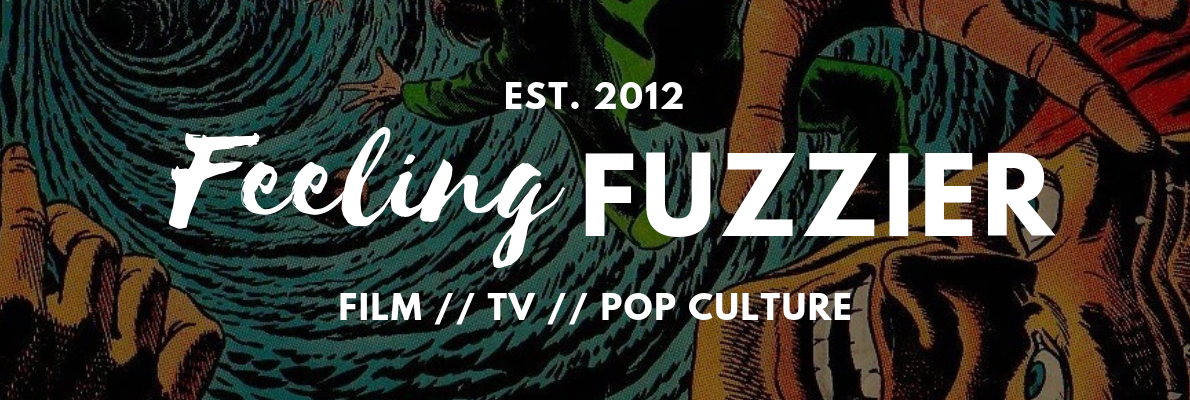Denis Villeneuve serves up one of the best films of the year and one of the best sequels of all time in Blade Runner 2049.
 Since its release back in 1982, Ridley Scott's original Blade Runner has undergone several editing room changes and had its distinctive neo-noir grubbiness cribbed by a multitude of films, television shows and animes. Defined by towering neon skyscrapers, littered streets and formidable pyramids, its indelible imprint on an entire aesthetic is unmistakable.
Since its release back in 1982, Ridley Scott's original Blade Runner has undergone several editing room changes and had its distinctive neo-noir grubbiness cribbed by a multitude of films, television shows and animes. Defined by towering neon skyscrapers, littered streets and formidable pyramids, its indelible imprint on an entire aesthetic is unmistakable.It seems perplexing therefore that it should be made to wait decades for a direct sequel. The idea has been floated time and again but its only now, 35 years later, that everything has coalesced into one thing; with director Denis Villeneuve (Sicario, Arrival) at the helm at Ryan Gosling as its lead character, Blade Runner 2049 jumps forward 30 years, advancing the narrative, deepening the universe and wholeheartedly living up to its formidable predecessor.
We open with Officer KD6-37 (Gosling), a blade runner – someone who tracks down and destroys dangerous robots or 'replicants' – travelling to the outskirts of the sprawling and smoggy Los Angeles metropolis. At a remote protein farm in the middle of nowhere, K unearths a long buried secret that threatens to upend the fragile status quo holding what is left of human society together. This discovery leads him down a rabbit hole, from one breadcrumb to another, with enemies and allies arriving along the way.
Right from the very first scene, Villeneuve aims to soothe the nerves of sci-fi fans with a simple and effective message; this is a Blade Runner sequel through and through. The scope is vast, the tone is sombre, the pace is slow and the overarching feeling is one of sorrowful introspection.
 Rather than twisting Scott's universe into a four quadrants summer tentpole, Villeneuve has preserved the original vision of Blade Runner by continuing to explore themes like artificial intelligence and human existence. Much like the original, Blade Runner 2049 holds up a mirror and offers commentary on contemporary issues and fears, from environmental decay and drone warfare to emotional isolation in an increasingly technologically connected landscape.
Rather than twisting Scott's universe into a four quadrants summer tentpole, Villeneuve has preserved the original vision of Blade Runner by continuing to explore themes like artificial intelligence and human existence. Much like the original, Blade Runner 2049 holds up a mirror and offers commentary on contemporary issues and fears, from environmental decay and drone warfare to emotional isolation in an increasingly technologically connected landscape.At 164 minutes, Blade Runner 2049 is a gigantic film. K's journey of discovery and introspection is a long one that winds its way across various landscapes, from the seething skyscrapers and glittering moving billboards of Los Angeles to the desolate landfill of San Diego and the arid perpetual sandstorm that is future Las Vegas. Action scenes are thankfully few and far between. When it does arrive, the action serves the narrative and never feels indulgent or excessive. It's punchy, visceral and effective stuff. If you're looking for reams of shell casings and pistol trickery, may I direct your attention to Scarlett Johansson's maligned but still enjoyable Ghost in the Shell.
All of this is framed beautifully by cinematographer Roger Deakins, whose deft eye for contrast and colour lifts the film off the screen. Between Deakins' achingly gorgeous compositions and Hans Zimmer's score (which toes the line between enchanting and bombastic), you owe it to yourself to see Blade Runner 2049 on the biggest and loudest screen possible.
That's enough about the technical stuff though; what about the characters? Gosling leads the charge with a commanding performance as the icy and inscrutable K, a compliant lawman who starts to pull at a thread that shakes the bedrock of his very existence. Gosling has been excellent in everything he has done in the last 18 months; goofy and endearing in The Nice Guys, suave and sophisticated in La La Land, distant and determined in Blade Runner 2049. It's a trifecta that showcases his range and talent as one of the best actors working today.
 Harrison Ford returns to the fold as former blade runner Rick Deckard; the less you know about this the better, but the good news is that Ford actually turns up on this occasion, much like his joyous reprise of Han Solo in Star Wars: The Force Awakens. Other supporting cast members – Robin Wright, Mackenzie Davis, Barkhad Abdi, Dave Bautista – leave an indelible impression on proceedings, sometimes with only a scene or two to their name. There really isn't a weak link. Yes, even Jared Leto is good. I know! I was surprised too.
Harrison Ford returns to the fold as former blade runner Rick Deckard; the less you know about this the better, but the good news is that Ford actually turns up on this occasion, much like his joyous reprise of Han Solo in Star Wars: The Force Awakens. Other supporting cast members – Robin Wright, Mackenzie Davis, Barkhad Abdi, Dave Bautista – leave an indelible impression on proceedings, sometimes with only a scene or two to their name. There really isn't a weak link. Yes, even Jared Leto is good. I know! I was surprised too.However it's two relative newcomers who steal the limelight; Ana De Armas as Joi and Sylvia Hoeks as Luv. Both play fantastic and memorable characters for opposing reasons, with one forming the emotional anchoring point of the narrative and the other a formidable force of uncompromising destruction.
While Scott's original Blade Runner will undoubtedly remain the more influential film with regards to impact on cinema, there are some major issues with it that diminish its entertainment value, in my eyes. It's a flawed masterpiece for sure.
Conversely, Villeneuve's sequel is an assuredly more polished and entertaining affair. It's a long, thoughtful saga that is eminently ponderous and compelling in a visual, aural and emotional sense. What's more, Blade Runner 2049 tells a complete story from A to Z. The film doesn't feel like table setting for a further six or seven films, as is the case for almost every major studio films nowadays. And while there are still some lingering questions when the credits roll, these only serve to deepen the central mysteries surrounding the universe and its characters. After all, this is Blade Runner – what would it be if it didn't leave stuff unanswered?
The Verdict: 10/10
Villeneuve, armed with a terrific cast, Deakins' arresting imagery and Zimmer's sonorous score, has crafted one of 2017's best films and one of the best sequels of all time.
Blade Runner 2049 is in cinemas across Australia now.



No comments:
Post a Comment